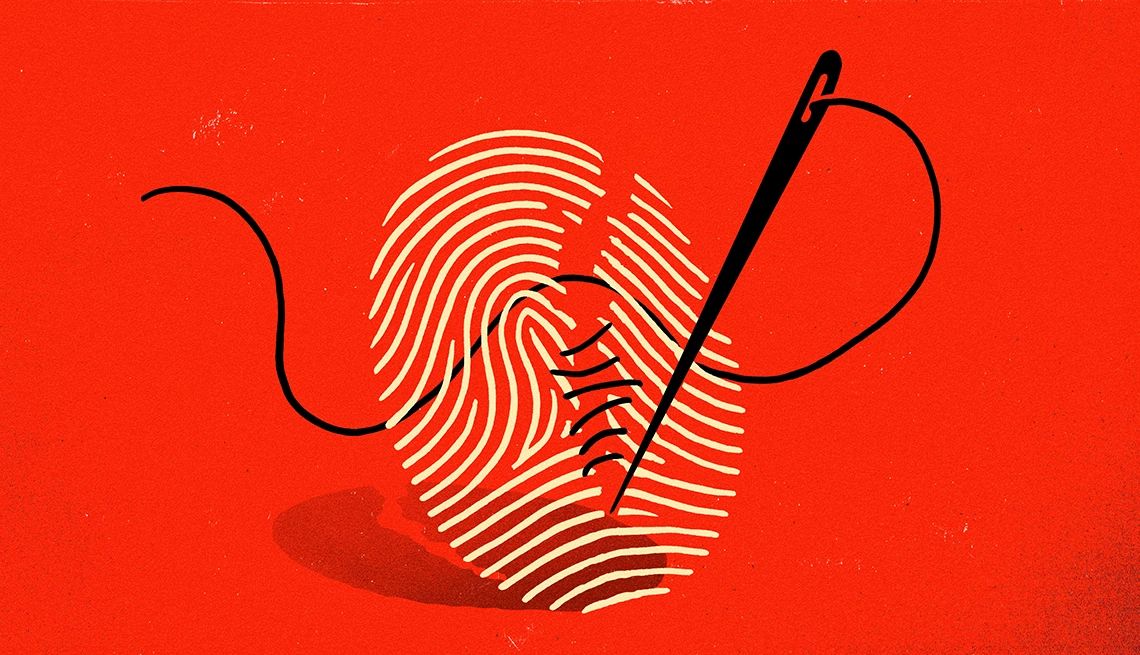
- Select a language for the TTS:
- UK English Female
- UK English Male
- US English Female
- US English Male
- Australian Female
- Australian Male
- Language selected: (auto detect) - EN
Play all audios:
5. CALL YOUR FINANCIAL INSTITUTIONS. Contact the security or fraud departments of any businesses where thieves opened an account or made charges. Alert them to the problem, dispute charges
you didn’t make, and ask them to freeze your accounts. Request a letter from them confirming that you didn’t make certain charges or open an account, that you aren’t liable for the charges,
and that the information was removed from your credit report, as the FTC recommends. That letter will be helpful if problems resurface. Follow the same procedures for other types of identity
fraud. If you’re a victim of tax fraud, for example, contact the Internal Revenue Service (IRS). If someone uses your identity to steal unemployment benefits, contact your state employment
agency. 6. FREEZE YOUR CREDIT AND PLACE A FRAUD ALERT. Contact all three credit reporting bureaus — Experian, Equifax, and TransUnion — to check your credit report for incorrect information
or accounts. Then place a credit freeze on your credit file. A credit freeze stops criminals from opening accounts in your name (it typically prevents companies from accessing your credit
report, meaning they can’t conduct a credit check or process a credit application). You can maintain the credit freeze even after you’ve recovered from ID theft. Roy keeps her credit frozen,
and her last ID theft incident came during a 24-hour period when she unlocked it to apply for a mortgage. InIncredibly, thieves tried to open a checking account during that one-day
window. “I bang the drum about freezing your credit on a regular basis,” Roy says. If you don’t want to freeze your credit for some reason, ask the credit bureaus to place a fraud alert on
your file. “When you have an alert on your report, a business must verify your identity before it issues new credit in your name,” the FTC notes. Regularly monitor your credit report to spot
fraudulent activity. You can check reports weekly for free at AnnualCreditReport.com, as recommended by the FTC. LEARN HOW AARP IS FIGHTING FOR YOU AARP is your fierce defender on the
issues that matter to people 50-plus. Read more about how we’re fighting for you every day in Congress and across the country. 7. AVOID REVICTIMIZATION. Some victims are often targeted in
fraud recovery scams. Scammers pose as legitimate entities — banks, lawyers, consumer groups, government agencies — claiming they can help victims regain their stolen money (for a fee, of
course) and speed up reimbursement. Warning signs include requests for your Social Security number or financial account information. The scammer might be the same criminal who stole your
identity. Be careful when Googling customer service numbers too. Scammers are increasingly posing as customer service agents, and some have rigged search engine algorithms so their fake
services appear high in the search results. Scrutinize URLs before you click. 8. DON’T EXPECT FAST RESULTS. Sometimes recovery is speedy, but as Roy’s case shows, it can also take years. The
length of recovery time can vary based on the type of identity theft. Credit card fraud can often be resolved in a few days or weeks; scams such as medical identity theft and new account
fraud may take several months or even years, according to Aura, a company that offers an identity theft protection app. The National Taxpayer Advocate reported to Congress in January 2025
that the IRS takes a staggering 22 months, on average, to resolve tax-related identity theft cases. 9. PROTECT YOUR MENTAL HEALTH. According to the ITRC’s October 2024 “Consumer &
Business Impact Report,” 12 percent of identity theft victims said they had contemplated suicide. “Victims of identity theft will feel overwhelmed at times by the psychological pain of loss,
helplessness, anger, isolation, betrayal, rage, and even embarrassment,” the Georgia Attorney General’s Consumer Protection Division warns. As you recover from identity theft, focus not
just on your financial well-being but also on your emotional well-being. Don’t neglect healthy habits (such as exercise), and consider seeing a mental health professional if you feel anxious
or depressed. AARP has free, confidential online Fraud Victim Support Groups led by trained facilitators. 10. FIND GOOD ADVICE AND ASSISTANCE. The ITRC’s online Victim Help Center provides
answers to common questions and recommended actions. You can chat, call, or text with an ITRC expert to develop a free, customized remediation plan. The FTC has a list of recommended steps
on its IdentityTheft.gov site, and you can contact specialists at AARP’s Fraud Watch Network.







